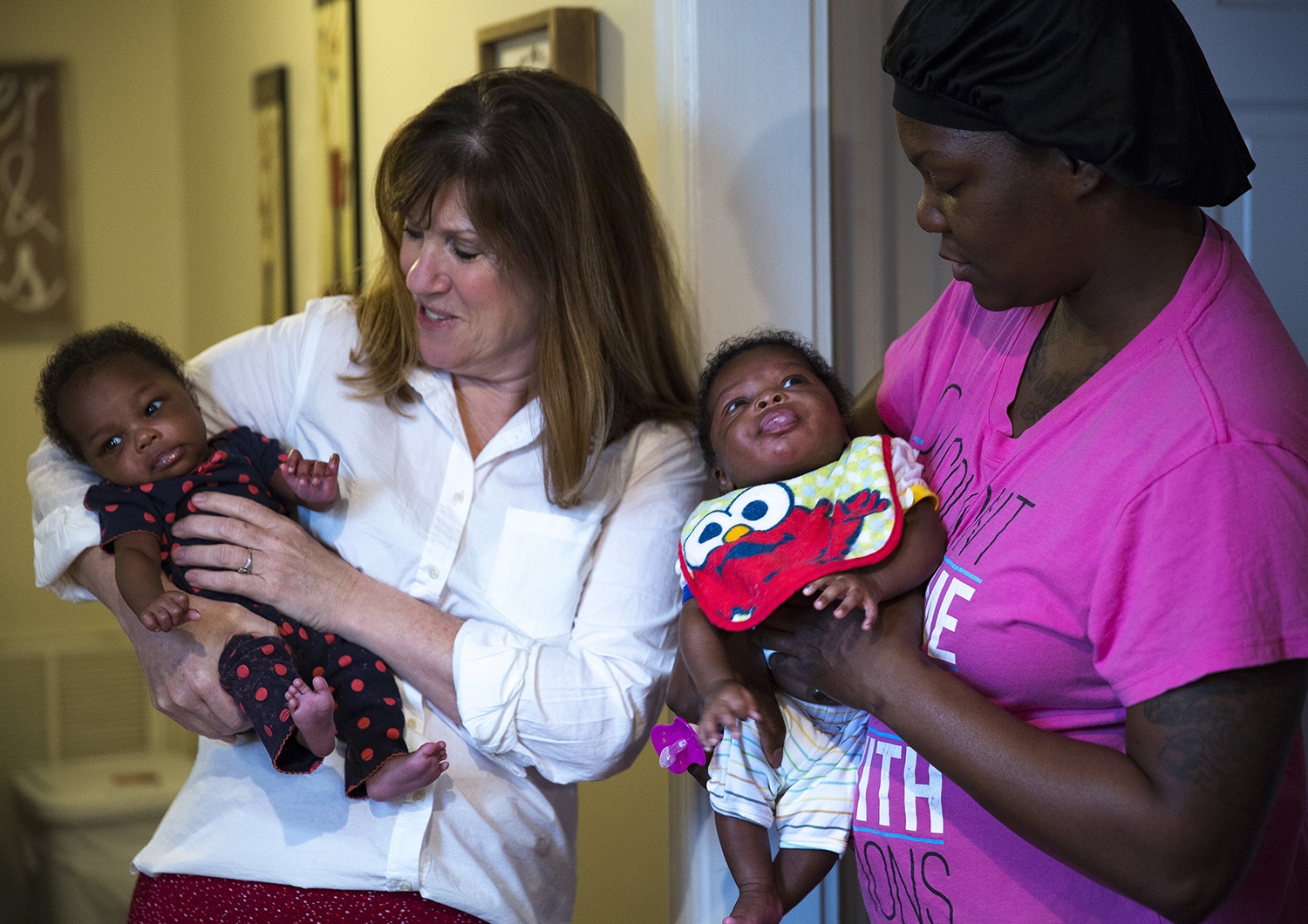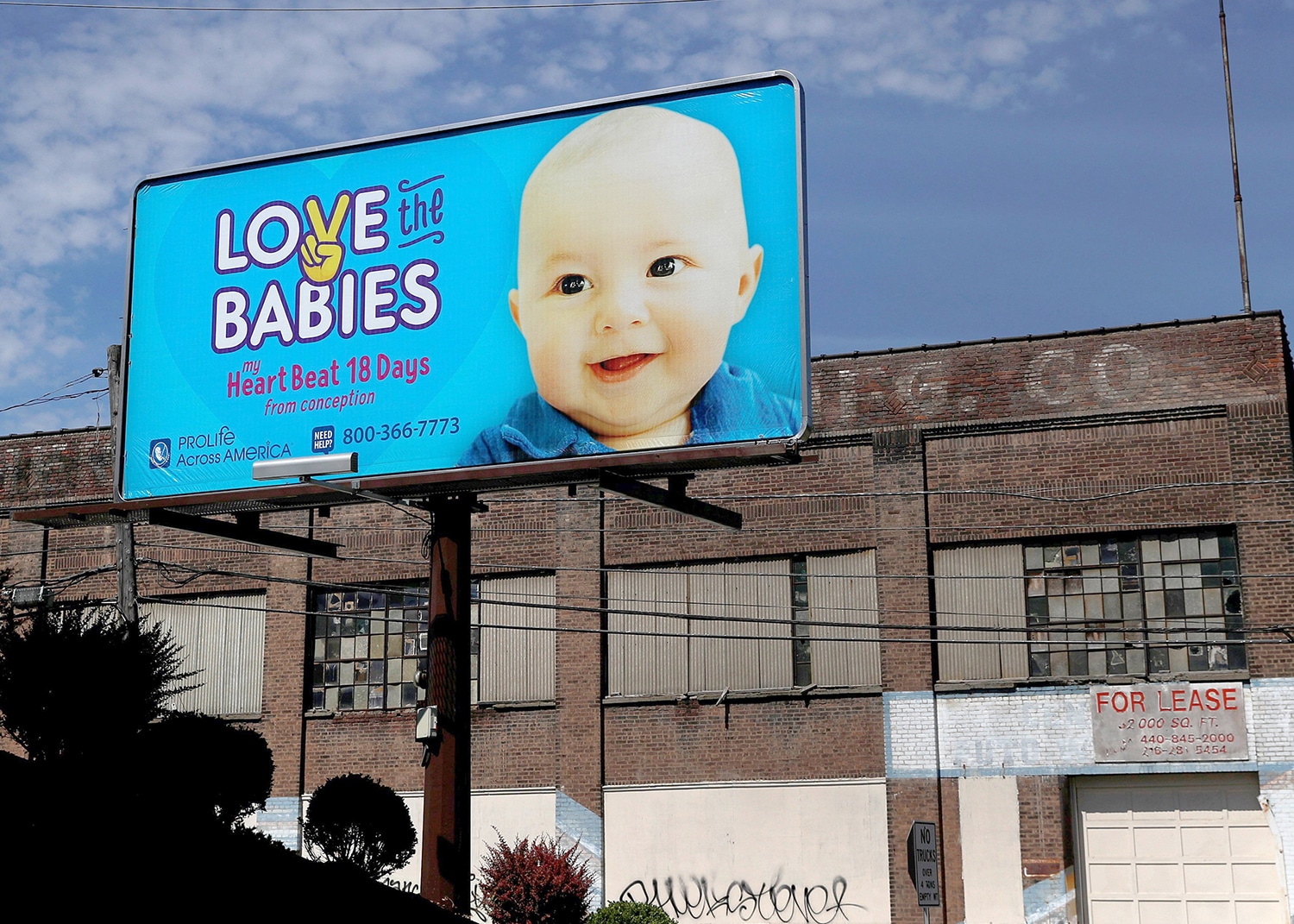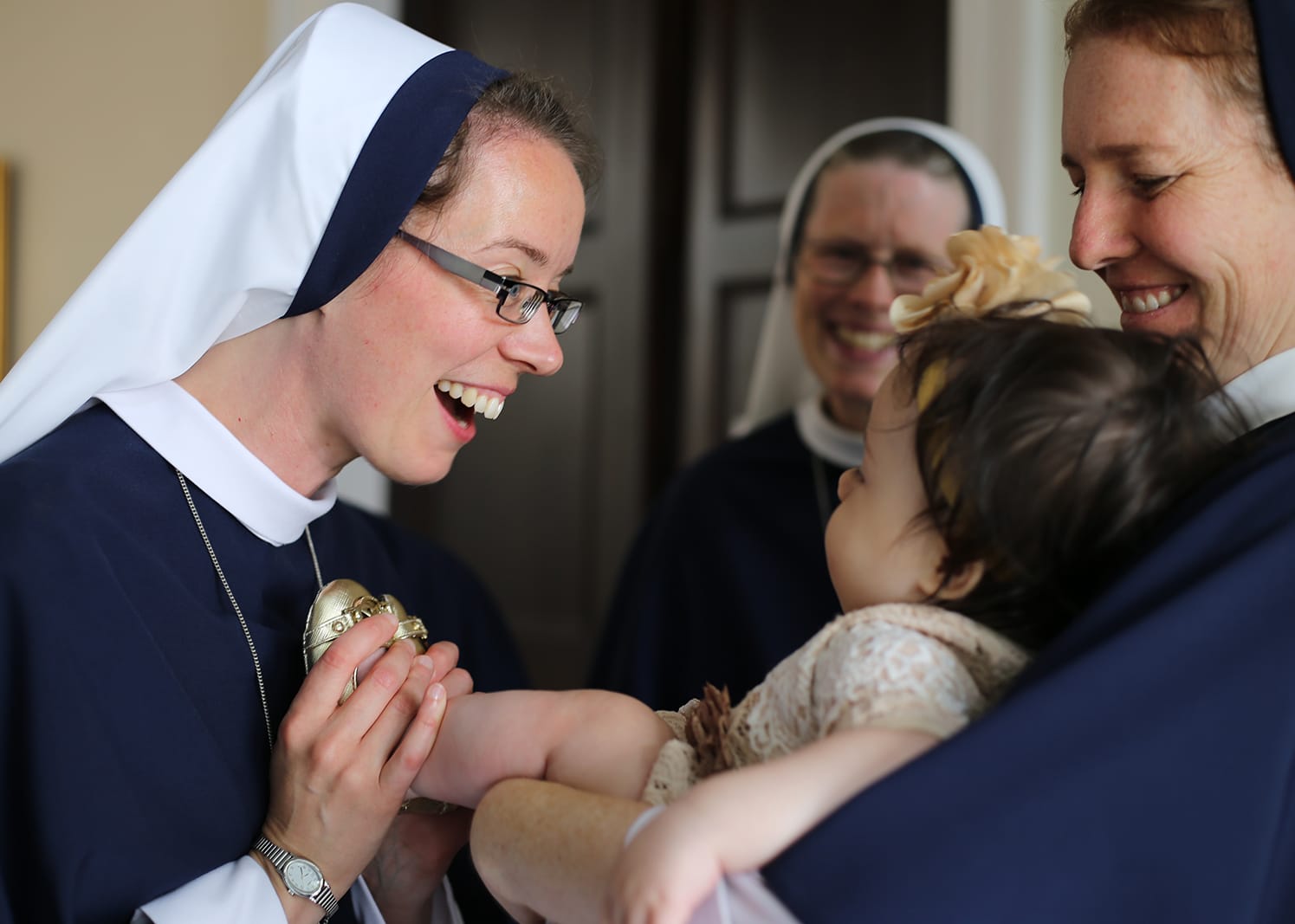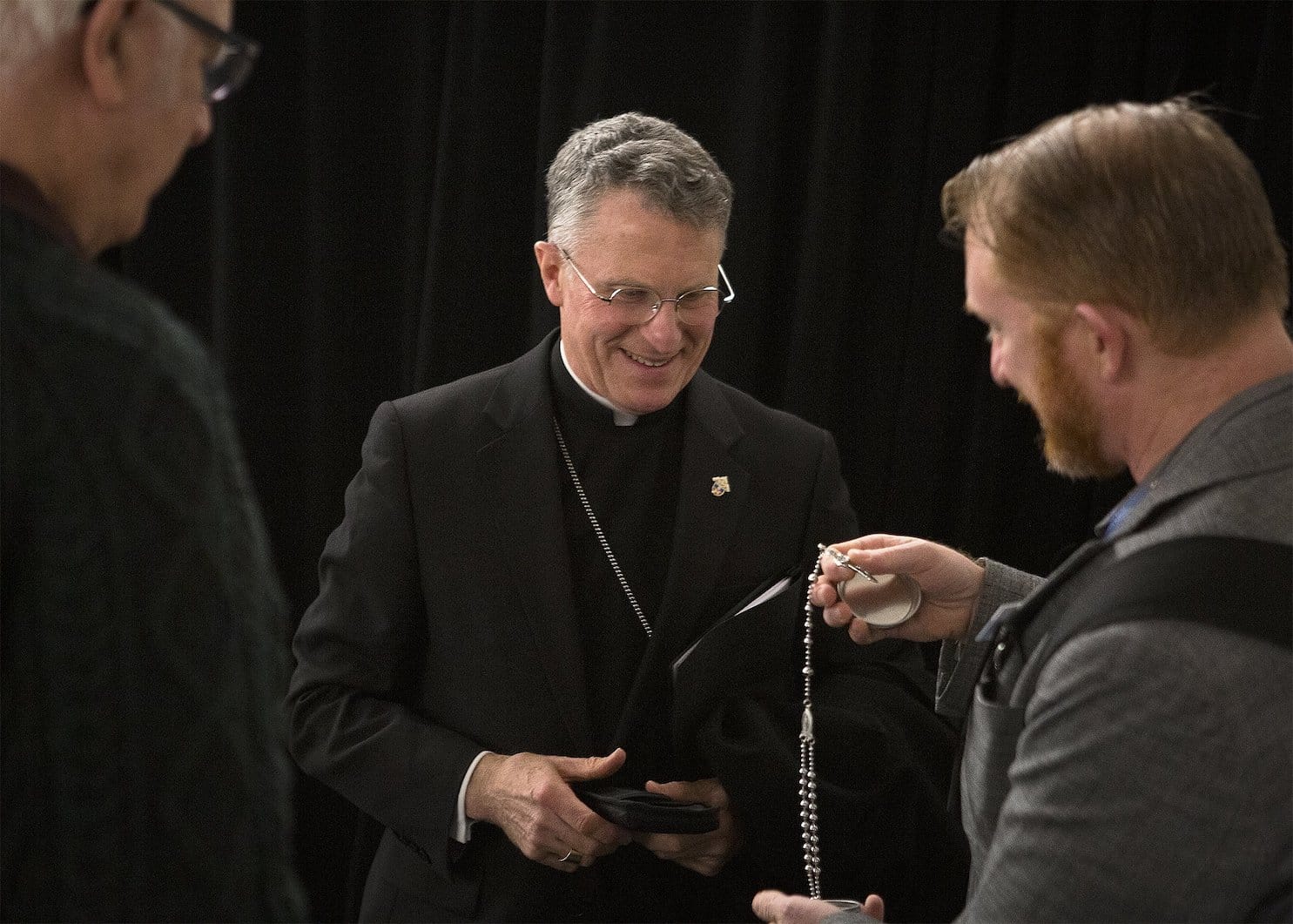Pro-life groups are working to connect pregnant and parenting women in need with places to stay amid the ongoing housing crisis. Their efforts, they hope, empower women to choose life.
“Housing has always been an issue for pregnant women, but now with the housing crisis it is increasingly an issue for those at risk of abortion,” Serrin M. Foster, president of Feminists for Life (FFL), told Our Sunday Visitor.
Pregnancy centers and maternity homes that directly serve struggling pregnant and parenting women confirmed with Our Sunday Visitor that a lack of housing is a concern — and can factor into a woman’s decision to have an abortion.
Valerie Harkins, director of the National Maternity Housing Coalition and a housing specialist at Heartbeat International, a worldwide network supporting more than 3,000 pregnancy help organizations, noted an increased demand for housing. At Mary’s Shelter, a faith-centered maternity home in Fredericksburg, Virginia., executive director Kathleen Wilson revealed that an increased need just led them to purchase a sixth home.
“We are completely filled in the homes that we have,” she said of their five houses and four apartment units that currently house 19 women and close to 40 children. “We’re seeing a real, steady flow of calls.”
Their comments come as the nation suffers from a housing crisis. According to State of the Nation’s Housing 2023 report from the Joint Center for Housing Studies of Harvard University, housing costs remain high relative to pre-pandemic levels even as the housing markets cool. The report finds that, from 2020 to early 2023, rents rose 23.9% while nominal home prices jumped 37.5%.
Leaders at other pregnancy centers and residences, such as at MiraVia in Charlotte, North Carolina, and Capitol Hill Pregnancy Center in Washington, D.C., said that the need for resources, such as housing, has always existed.
“I wouldn’t say it’s a new problem,” Janet Durig, the executive director of Capitol Hill Pregnancy Center, said. “I would say it’s been an ongoing situation from the time I’ve been there.”
Together, pro-life groups, such as FFL, and pregnancy centers and maternity homes are working to address the issue — and promise to accompany women in need along the way.
Seeking solutions
Foster spoke with Our Sunday Visitor following a recent newsletter by her organization emphasizing how housing problems can drive women toward abortion.
“Whether it is making rent, or finding an affordable place to live, poor credit, or living in unsafe or substandard housing, housing crises can quickly lead to despair and force a choice that may have not otherwise been made,” the FFL release reads.
The few studies that address the topic find a link between housing and abortion. A study published by the Guttmacher Institute in 2005 examining 1,209 post-abortive women found that 73% listed “can’t afford a baby now” as a reason for their abortion, including 19% who said they would have to find a new place to live. According to a study published by “BMC Women’s Health” in 2013 of 954 post-abortive women, approximately 5% said their living or housing context was not suitable for a baby and said this was a reason for their abortion.
FFL wants to help women navigate federal, state and charitable resources for those groups at high risk of suffering an abortion, including college students, young working women, the poor and victims of violence, Foster said.
In response, FFL’s WomenDeserveBetter.com — a helpsite addressing issues relevant throughout a woman’s life with a focus on work, home life, education and relationships — is empowering women with information about housing. Articles include everything from “Your Housing Rights: Leases, Landlords, and Children” to “Where to Find Help Paying for Housing.”
In addition to their helpsite, Foster pointed to CoAbode as an option for single mothers to live together and share chores and responsibilities. She also highlighted that The Gabriel Network or the Gabriel Project offer to help women in need.
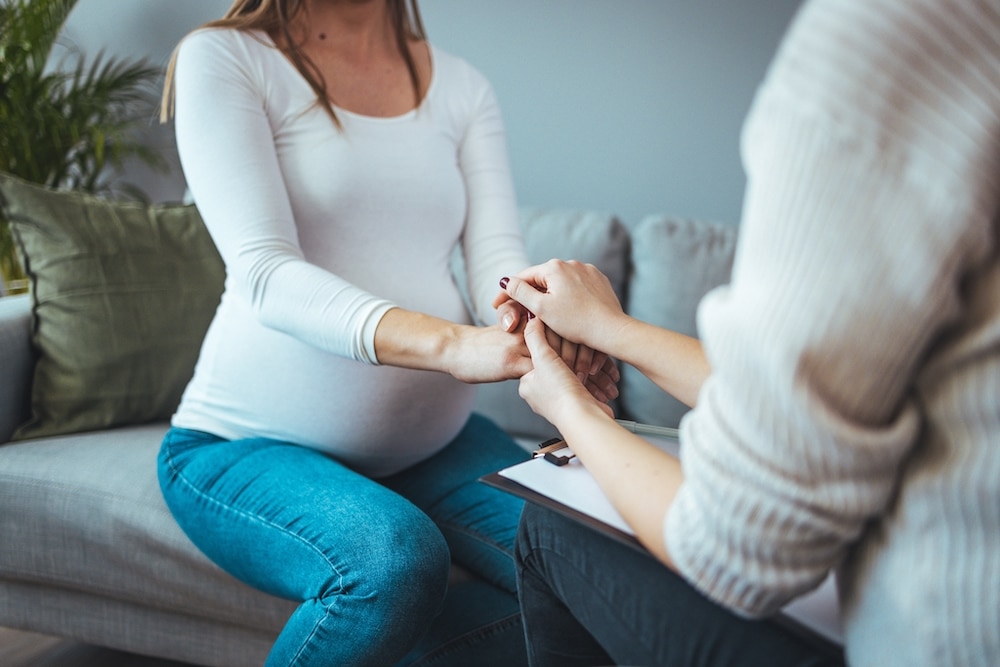
Meeting the need
For their part, pregnancy centers and maternity homes said they are working to meet the needs they see firsthand. In the United States, roughly 3,000 pregnancy centers and maternity homes currently provide pregnant and parenting women with life-affirming care at little to no cost.
At Heartbeat International, Harkins said that, in addition to seeing an increase in the need for housing, they are also seeing an increase in the number of organizations providing housing.
“In the last year alone, we’ve seen a 21% increase in the number of housing affiliates we have alone,” she said. “That’s a 21% increase in just the sheer number of organizations offering housing.”
She recognized a national need for housing in urban, rural and suburban environments.
“That really appears to be from many different factors, mainly being affordable housing and the sky-high cost of housing nationally right now,” she said. “It seems to have really put the pressure on women, but particularly with women with children in their care.”
Many homes are looking to either expand their housing or begin to offer housing “to provide women true freedom of choice,” she said.
“They don’t want women to feel like they need to choose abortion because they don’t have housing,” she said. “In that yearning and love for life, they want to offer resources to mom and, of course, to baby.”
At Mary’s Shelter, Wilson expressed excitement over their sixth home that they are preparing to open. At the same time, they have been assisting with the opening of other homes in the area, including in Virginia, West Virginia and Maryland.
“I do think the increase in rent has a small part in it,” she said of the need for housing, adding that most of the women they speak to are on the homeless level because of abuse or getting out of abusive relationships.
“I’d like to also think it’s because pro-life organizations and sidewalk counselors and all are doing such a great job out there,” she said.
Debbie Capen, the executive director at MiraVia, said that a study produced by FFL, “Perception is Reality,” helped inform their plans to serve pregnant college students. The Catholic nonprofit includes an outreach center and a free college residence at the nearby Belmont Abbey College, where pregnant students from any university or college can stay until their child turns two years old.
“Sadly, there has always been and continues to be a lack of meaningful resources for single-pregnant women,” Capen said. “This is especially true when it comes to college campuses.”
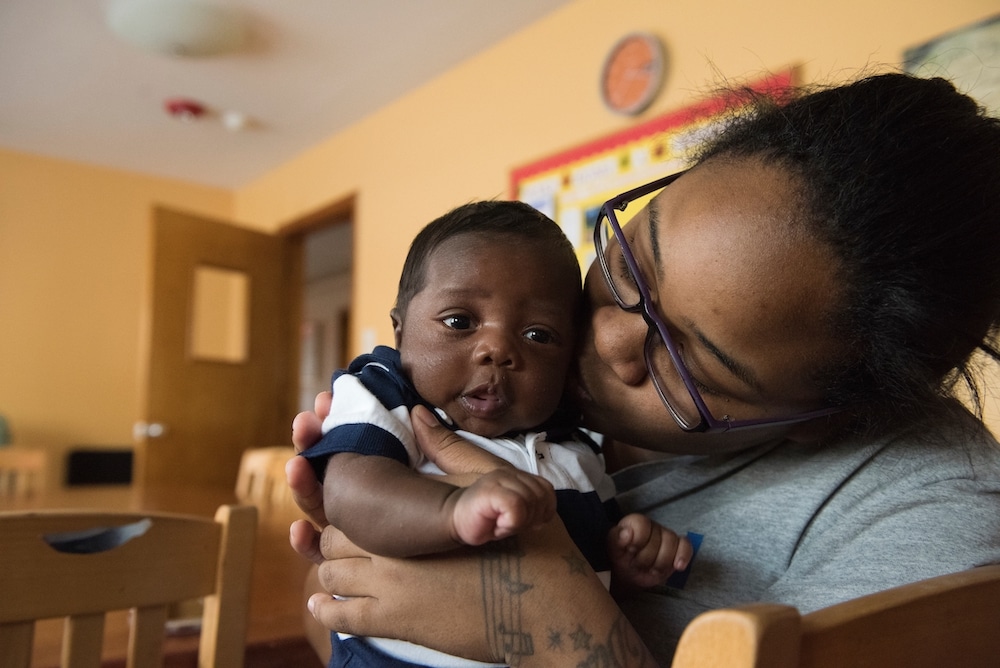
Finding ways to help
Everyone can do something to help pregnant and parenting women in need, Foster stressed.
“Whether it is supporting a pregnancy resource center or pro-life group as a volunteer or donor, donating maternity or baby/children’s clothes or diapers, supporting a mom in need with a baby shower or babysitting later on,” she said, adding that people can also volunteer to write tips at WomenDeserveBetter.com.
Some people even take in women themselves, she said, pointing to one of FFL’s former interns who welcomed in a homeless pregnant woman as well as her sister, who empowered a pregnant college student by offering her home to her.
At Mary’s Shelter, Wilson mentioned that people can pray and spread the word about their work in addition to volunteering and donating materially and financially.
“As soon as we can afford another house, we’re going to get another house,” Wilson said. “We’ll just keep growing as the need dictates, and the need is very much dictating.”

